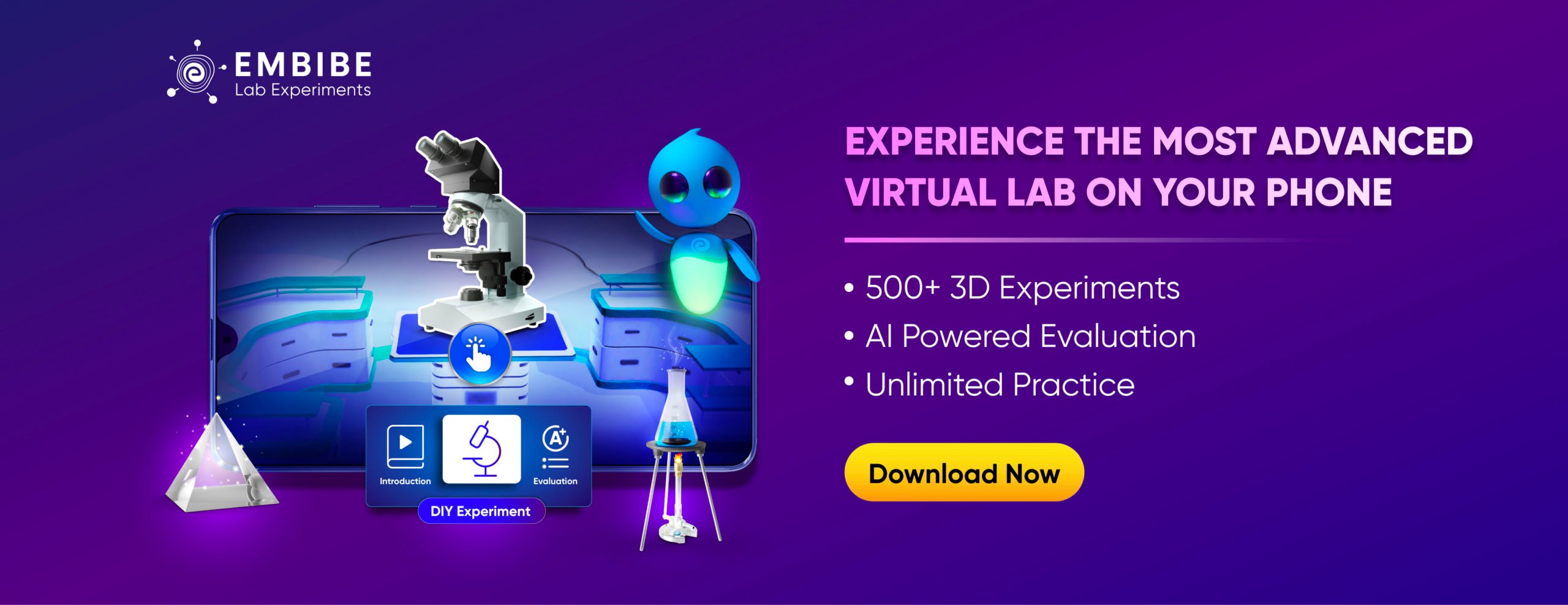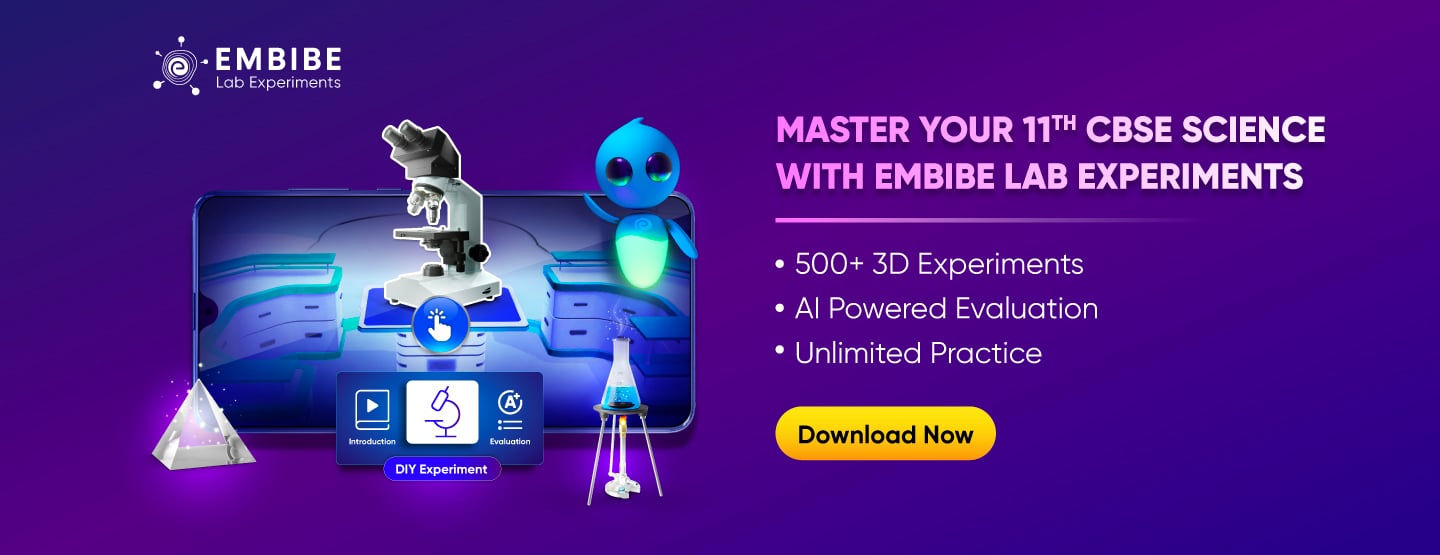- Written by gnanambigai
- Last Modified on 12-12-2024
Telangana State Board Class 11 Exam
Telangana Board of Education was set up in 2014 to provide education to students in the state. In addition to administering the first-year and second-year education system, the board is also responsible for course design, syllabus preparation, examination administration, guidance, and support for all educational institutions. Telangana Board of Education prepares the curriculum and syllabus for Class 11 students and is also in charge of conducting the Class 11 exam.
In essence, the Telangana Board of Education aims to instill critical thinking, open-mindedness, and flexibility in students learning. As a result, the board provides students with high-quality education and skills. This article discusses the Telangana Board Class 11 exam in detail. Read on to find out more about the exam and relevant information like syllabus, preparation tips, and many more.

Telangana Board Class 11 Exam Summary
Class 11 exam prepares students to face the board exam in their next class. The Telangana Board Class 11 exam is conducted at the school level by adhering to the rules and guidelines set by the board. The exam is usually held in March every year and the duration is 3 hours. Before, going into further details let us look at the brief overview of the Telangana Board Class 11 exam:
| Particulars |
Details |
| Board |
Telangana State Board of Intermediate Education |
| Exam Name |
Telangana Board 1st Year Intermediate Exam |
| Exam Mode |
Offline |
| Exam Duration |
3 hours |
| Exam Frequency |
Annually |
| Passing Marks |
35% in each subject |
| Full Marks |
100 for each subject |
| Official Language |
Telugu |
| Mode of application |
Online |
Telangana Board Official Website Link
https://tsbie.cgg.gov.in/home.do
Telangana Board Class 11 Exam Syllabus 2025
Exam Syllabus
The Telangana Board prescribes the syllabus and curriculum for Class 11 students. The syllabus is an important study resource that every student should have while preparing for the exam. Referring to it gives them an idea of the chapters and topics covered for a particular academic year. In this way, they can prepare a study plan and schedule their time accordingly. The sections below provide the Telangana Board Class 11 subject-wise syllabus:
Telangana Board Class 11 Physics Syllabus
Physics is a subject that deals with the study of energy and matter, the physical world, and its phenomena. Having clear concepts and thorough practice of the numerical questions go a long way in helping students prepare for the exam better. The table below provides the syllabus for Telangana Board Class 11 Physics:
| Unit |
Chapters |
| 1 |
Physical World and Measurement :
Chapter–1: Physical World
Chapter–2: Units and Measurements |
| 2 |
Kinematics:
Chapter–3: Motion in a Straight Line
Chapter–4: Motion in a Plane |
| 3 |
Laws of Motion
Chapter–5: Laws of Motion |
| 4 |
Work, Energy and Power
Chapter–6: Work, Energy and Power |
| 5 |
The motion of System of Particles and Rigid Body
Chapter–7: System of Particles and Rotational Motion |
| 6 |
Gravitation
Chapter–8: Gravitation |
| 7 |
Properties of Bulk Matter
Chapter–9: Mechanical Properties of Solids
Chapter–10: Mechanical Properties of Fluids
Chapter–11: Thermal Properties of Matter |
| 8 |
Thermodynamics
Chapter–12: Thermodynamics |
| 9 |
The Behaviour of Perfect Gases and Kinetic Theory of Gases
Chapter–13: Kinetic Theory |
| 10 |
Oscillations and Waves
Chapter–14: Oscillations |
Telangana Board Class 11 Chemistry Syllabus
Chemistry deals with the study of elements and compounds, their structure, physical and chemical properties, applications, and many more. The subject is divided into Physical, Organic, and Inorganic Chemistry. Here is the syllabus for Telangana Board Class 11 Chemistry:
| Chapter No. |
Chapter Name |
| 1 |
Some Basic Concepts of Chemistry |
| 2 |
Structure of Atom |
| 3 |
Classification of Elements and Periodicity in Properties |
| 4 |
Chemical Bonding and Molecular Structure |
| 5 |
States of Matter: Gases and Liquids |
| 6 |
Organic Chemistry: Some Basic Principles and Techniques |
| 7 |
Hydrogen |
| 8 |
Chemical Thermodynamics |
| 9 |
Equilibrium |
| 10 |
Redox Reactions |
| 11 |
s-Block Elements |
| 12 |
Some p-Block Elements |
| 13 |
Hydrocarbons |
| 14 |
Environmental Chemistry |
Telangana Board Class 11 Mathematics Syllabus
Maths is a subject that requires a strong foundation, clear concepts and rigorous practice. Class 11 Maths syllabus includes topics like Sets, Conic Sections, Limits and Derivatives, and many more. Students can refer to the table below for the detailed Telangana Board Class 11 Maths syllabus:
| Unit |
Chapters |
Topics |
| Set and Function |
Sets |
Sets and their representations
Empty set
Finite and Infinite sets
Equal sets
Subsets
Subsets of a set of real numbers especially intervals (with notations)
Power set
Universal set
Venn diagrams
Union and Intersection of sets
Difference of sets
Complement of a set
Properties of Complement
Ordered pairs
Cartesian product of sets
The number of elements in the Cartesian product of two finite sets.
Cartesian product of the set of reals with itself (up to R x R x R)
Definition of relation, pictorial
diagrams, domain, co-domain and range of a relation.
Function as a special type of relation
Pictorial representation of a function, domain, co-domain and range of a function.
Functions with real values these functions’ domain and range, as well as their graphs, are constant, identity, polynomial, rational, modulus, signum, exponential, logarithmic, and largest integer functions.
Sum, difference, product and quotients of functions. |
| Relations and Functions |
| Trigonometric Functions |
| Algebra |
Principle of Mathematical Induction |
The use of the approach is motivated by looking at natural numbers as the least inductive subset of real numbers, which is the process of proof by induction.
Simple uses of the mathematical induction principle.
Linear inequalities
The number line representation of algebraic solutions of linear inequalities in one variable.
Linear inequalities in two variables are graphically solved.
Finding a solution to a system of linear inequalities in two variables using a graphical technique. |
| Complex Numbers and Quadratic Equations |
| Linear Inequalities |
| Permutations and Combinations |
| Binomial Theorem |
| Sequences and Series |
| Coordinate Geometry |
Straight Lines |
Brief recall of two-dimensional geometry from earlier classes.
Shifting of origin.
The slope of a line and angle between two lines.
Various forms of equations of a line: parallel to axis, point-slope form, slope-intercept form, two-point form, intercept form and normal form.
General equation of a line.
Equation of family of lines passing through the point of intersection of two lines.
Distance of a point from a line.
Coordinate axes and coordinate planes in three dimensions.
Coordinates of a point.
Distance between two points and section formula. |
| Conic Sections |
| Introduction to Three-dimensional Geometry |
| Calculus |
Limits and Derivatives |
Both as a distance function and geometrically, the derivative is introduced as a rate of change.
The limitation is an intuitive concept.
Polynomial and rational function limits, as well as trigonometric, exponential, and logarithmic functions.
The scope of a tangent of the curve, the derivative of the sum, difference, product, and quotient of functions are all included in the definition of the derivative.
Polynomial and trigonometric functions have derivatives. |
| Mathematical Reasoning |
Mathematical Reasoning |
Statements that are mathematically sound.
Connecting words/phrases – consolidating comprehension of “if and only if (necessary and sufficient) condition,” “implies,” “and/or,” “implied by,” “and,” “or,” “there exists,” and their applications through a variety of real-world and mathematical situations.
Validating the claims that contain linking words.
Contradiction, converse, and contrapositive are all terms that have different meanings. |
| Statistics and Probability |
Probability |
Measures of Dispersion
Range
Mean deviation
Variance and standard deviation of ungrouped/grouped data.
Frequency distributions with the same mean but distinct variances are analysed.
Random experiments; outcomes, sample spaces (set representation).
Events; occurrence of events, ‘not’, ‘and’ and ‘or’ events, exhaustive events, mutually exclusive events.
Axiomatic (set-theoretic)
Probability
Connections with other theories of earlier classes.
Probability of an event.
Probability of ‘not’, ‘and’ and ‘or’ events. |
| Statistics |
Telangana Board Class 11 Biology Syllabus
Biology is one of the subjects included in the Telangana Board Class 11 curriculum and it is important, especially for students who wish to get into the medical field. The topics included require students to be familiar with scientific terms and to remember the theories. We have provided the syllabus for Telangana Board Class 11 Biology below:
| Unit Name |
Chapters & Topics |
| Diversity in the Living World |
The Living World
What is living?
Diversity in the living world
Taxonomic categories and Taxonomic aids |
Biological Classification
Five kingdom classification
Monera, Protista, Fungi, Plantae and Animalia
Three domains of life
Viruses, Viroids, Prions, and Lichens |
Science of Plants – Botany
Origin
Development
Branches of botany
Branches of Botany |
Plant Kingdom
Salient features
Classification and alteration of generations of plants of the following groups
Algae
Bryophytes
Gymnosperms
Angiosperms |
| Structural Organisation in Plants – Morphology |
Morphology of Flowering Plants
Vegetative
Parts of a typical angiosperm plant
Vegetative morphology and modifications
Roots, stem, and leaf
Types, venation, phyllotaxy
Reproductive
Inflorescence
Racemose, cymose, and special types
Parts of a flower and detailed description
Aestivation
Placentation
Types of fruits |
| Reproduction in Plants |
Modes of Reproduction
Asexual reproduction
Binary fission
Sporulation
Budding
Fragmentation
Vegetative propagation in plants
Sexual reproduction in brief
Overview of angiosperm life cycle |
Sexual Reproduction in Flowering Plants
Stamen
Microsporangium
Pollen grain
Pistil
Megasporangium and embryo sac
Development of male and female gametophytes
Pollination – types, agents
Out breeding devices
Pollen – pistil interactions
Double fertilisation
Development of endosperm and embryo
Development of seed
Structure of monocotyledonous and dicotyledonous seeds
Significance of fruits and seeds
Special modes – apoximis, parthenocarpy, polyembryony |
| Plant Systamatics |
Taxonomy of Angiosperms
Introduction
Types of Systems of classification
Semi-technical description of a typical flowering plant
Description of families
Fabaceae
Solanaceae
Liliaceae |
| Cell Structure and Functions |
Cell: The unit of Life
Cell theory – overview of the cell
Prokaryotic cells
Ultra structure of plant cell
Cell membrane
Cell wall
Cell organelles
Cilia, flagella
Cytoskeleton
Nucleus
Chromosomes: Number and structural organisation
Nucleosome |
Biomolecules
Structure and function of
Proteins
Carbohydrates
Lipids
Nucleic acids |
Cell Cycle and Cell Division
Cell cycle
Mitosis
Meiosis
Significance |
| Internal Organisation of Plants |
Histology and Anatomy of Flowering Plants
Tissues – types, structure and functions
Meristematic, permanent tissues
Simple and complex tissues
Tissue systems – types, structure and functions
Epidermal, ground, and vascular tissue systems
Anatomy of dicotyledonous and monocotyledonous plants
Root, stem, and leaf
Secondary growth in dicot stem and dicot root |
| Plant Ecology |
Ecological Adaptation, Succession and Ecological Services
Plant communities
Ecological adaptations
Hydrophytes
Mesophytes
Xerophytes
Plant succession
Ecological services – carbon fixation, oxygen release and pollination |
Telangana Board Class 11 English Syllabus
English is one the language subjects that students should take in their Class 11 curriculum. The syllabus aims to promote good reading and writing skills and enhance effective communication in students. Here is the syllabus for Telangana Board Class 11 English:
| Sl. No. |
Section |
Chapter Name |
| 1 |
Poem |
Happiness – Carl Sandburg |
| 2 |
A Red Red Rose – Robert Burns |
| 3 |
The Beggar – Dr. Ammangi Venugopal |
| 4 |
The Noble Nature – Ben Johnson |
| 5 |
Poem |
Keep Going – Edgar Guest |
| 6 |
Prose |
Two Sides of Life – Booker T Washington |
| 7 |
Father, Dear Father – Raj Kinger |
| 8 |
Prose |
The Green Champion – Thimmakka |
| 9 |
Prose |
The First Four Minutes – Roger Bannister |
| 10 |
Box and Cox – John Maddison Morton |
| 11 |
Playing the Game – Arthur Mee |
| 12 |
Short Story |
The Five Boons of Life – Mark Twain |
| 13 |
Short Story |
The Short-sighted Brothers – Folklore |
| 14 |
Short Story |
Sanghala Panthulu – Suravaram Prathapa Reddy |
| 15 |
Short Story |
The Dinner Party – Mona Gardner |
| 16 |
Grammar |
Parts of Speech |
| 17 |
Grammar |
Articles |
| 18 |
Grammar |
Prepositions |
| 19 |
Grammar |
Tenses |
| 20 |
Grammar |
Transformation |
| 21 |
Grammar |
Correction of Errors in Sentences |
| 22 |
Grammar |
Word Grammar |
| 23 |
Grammar |
Study Skills |
| 24 |
Grammar |
Comprehension |
Telangana Board Class 11 Study Plan to Maximise Score
It is important for the students to formulate a strategy and a study plan for Telangana Board Class 11 exam. It helps in the timely completion of the syllabus and gives them enough time for revision. This prevents them from stressing themselves during the exam and helps in scoring excellent marks. Telangana Board Class 11 exam preparation tips and a detailed study plan are provided below:
Telangana Board Class 11 Preparation Tips
Preparation tips help students study smartly for the exam. They can follow these tips not only during the exams but on a daily basis while preparing for the exam. Below we have provided some important preparation tips for students who will be appearing for the Telangana Board 11th exam:
- Go through the syllabus: This is the first and most crucial Telangana Board 11th preparation tip. The most critical aspect of any exam preparation is knowing the syllabus. So students should analyse the topics they need to study and know their weightage. As a result, they will have a better sense of preparing for exams and what topics are vital to cover.
- Make a study schedule: The next Telangana Board 11th exam preparation advice is to make a study schedule and stick to it. You should allocate time to all subjects according to your strengths and weaknesses. Students should go through the Telangana Board 11th exam timetable and create a schedule for scoring good marks in exams.
- Refer to prescribed and reference books: You should study the concepts from the recommended books. These books contain information on all concepts in an easy-to-understand format. Students can also refer to ebooks on Embibe for better comprehension.
- Maintain a separate notebook for each subject: It is a smart practice because it allows you to jot down essential points, chapter summaries, and your answers to questions. These notebooks are really useful for revising and improving your grades.
- Clear all the doubts: If you have any doubts about a topic, have them cleared and understand the concepts properly. You might speak with your subject professors, seniors, or peers to clear your doubts.
- Practice questions and take tests: Students should practice questions to have better conceptual clarity. Once they are done with learning and practicing, they should move on to the test part to understand how well they have understood or learned a topic. They can get practice questions and mock tests with detailed feedback on Embibe for.
Telangana Board Class 11 Detailed Study plan
Class 11 Physics, Chemistry, Maths, and Biology are very different from what you learned in Class 10. In the Class 11 syllabus, new chapters, concepts, and topics have been included. So, one must have a broad understanding of all the subjects. In addition, compared to Class 10, Class 11 requires a far greater understanding of theories, mathematics, chemical reactions, and so on. As a result, one must plan accordingly.
Physics: It is a science in which theories need a proper understanding and the numerical questions are associated with them. As a result, students should study the subject seriously and refer to the tips mentioned below.
- Understand the chapters completely, without missing any concepts. Keep in mind that you must be able to visualise the numerous mechanisms, processes, and experiments, among other things.
- In a separate notebook, jot down the key points for each chapter: definitions, brief descriptions, formulas, diagrams, equations, and so on.
- From the solved examples, learn how to tackle problems in a systematic way.
- At the end of the chapter, answer the practice questions. Mark difficult questions so you may go back and review/practice them later.
Chemistry: The Class 11 Chemistry syllabus is divided into three sections: Physical Chemistry, Organic Chemistry, and Inorganic Chemistry. Below are the tips to prepare for the subject and score good marks.
- Refer to the Class 11 textbook for Chemistry, just like you would for Physics. Remember to grasp every concept, topic, mechanism, process, reaction, and so on.
- Chemistry necessitates the memorising of several formulas, reactions, equations, etc. So jot down the equations, reactions, and formulas as you study.
- Make a list of definitions for different terminology, as well as brief descriptions of relevant processes, reactions, and experiments.
- If you don’t practice the reactions and equations on a regular basis, you’ll forget them.
- The example problems will give you an idea of how to tackle challenges.
- At the end of the chapter, answer the questions.
- Regularly review the theory, equations, reactions, and formulas.
Mathematics: Mathematics is a crucial subject not only for engineering students but also other fields of higher education. This subject involves understanding the concepts and numerous formulas.
- Understand the philosophy behind each topic by referring to the textbooks.
- Write down the formulas for a chapter, making sure you understand them, what they mean, and how to apply them.
- Analyse the problems’ solutions to understand how to resolve them.
- Answer the questions at the end of the chapter to complete the chapter.
- The more you practice math, the better you will become.
Biology: The subject is crucial for students who wish to get into the medical field or life science. It is a theory-based subject that includes numerous diagrams, procedures, scientific names, and so on.
- To properly understand the different concepts, read the Class 11 Biology books.
- Important concepts, points, concise descriptions, diagrams, flow charts, scientific names, and so on should all be written down. Revise all the concepts frequently to score maximum marks in the exams.
- Solve questions at the end of each chapter. Then, revise both the theory and the questions.

FAQs on Telangana Board Class 11 Exam 2025
Here are the most frequently asked questions about Telangana Board Class 11 Exam 2025:
Q: How does knowing the syllabus help with the Telangana State Board Class 11 exam preparation?
Ans: Understanding the Telangana State Board Class 11 syllabus allows students to analyse the course and plan their approach to exam preparation.
Q: Is the Telangana State Board Class 11 syllabus difficult?
Ans: The Telangana State Board Class 11 syllabus is extensive, but with proper planning and study materials, students can ace their exams. Embibe is a website where students can find Telangana State Board 11th study materials.
Q: Who administers the Telangana State Board 11th grade exams?
Ans: The Telangana State Board of Intermediate Education (TSBIE) is in charge of administering the Telangana State Board 11th exams.
Q: Where can I get practice questions for Telangana Board Class 11 Physics?
Ans: Students can get numerous practice questions for the Telangana Board Class 11 Physics on Embibe.
Q: Where can I take mock tests for Telangana Board Class 11
Ans: Students can take mock tests on Embibe for Telangana Board Class 11.
Telangana Board Class 11 List of Educational Institutions
Choosing the right school is important as it builds students’ fundamentals and enhances their potential and skills. There are various schools affiliated with the board that provides quality education to students. Here is the list of schools and colleges affiliated with Telangana State Board Class 11:
| List of Schools |
Board |
Location |
| Zilla Parishad High School, Kukatpally, Telangana |
Government |
Kukatpally, Telangana |
| Government High School Raj Bhavan, Somajiguda, Telangana |
Government |
Somajiguda, Telangana |
| Government High School, Vijaya Nagar Colony, Telangana |
Government |
Vijaya Nagar Colony, Telangana |
| Government High School, Zamistanpur, Telangana |
Government |
Zamistanpur, Telangana |
| Government High School, Toli Chowki, Telangana |
Government |
Toli Chowki, Telangana |
| Government High School, Brahmanwadi, Telangana |
Government |
Brahmanwadi, Telangana |
| Government Girls Primary School, Secunderabad, Telangana |
Government |
Secunderabad, Telangana |
| Government Nehru Memorial High School, Malakpet Colony, Telangana |
Government |
Malakpet Colony, Telangana |
| Government High School, Somajiguda, Telangana |
Government |
Somajiguda, Telangana |
| Nanakramguda Government School, NanakramGuda, Hyderabad, Telangana |
Government |
NanakramGuda, Telangana |
| Government Boys Primary School Bolakpur |
Government |
Bholakpur, Telangana |
| Government School, Vemulawada, Telangana |
Government |
Vemulawada, Telangana |

Telangana Board Class 11 List of Future Exams
Class 11 lays the foundation for future education. The syllabus and preparation for Class 11 will help to clear several national-level exams and enroll in various courses for future progress. Besides, the board exam there are other exams that students can appear for. Let’s have a look at the several national competitive examinations that students can take after class 11:
| Stream |
Exam |
| Engineering |
Joint Entrance Examination (JEE) Main
JEE Advanced
Birla Institute of Technology and Science Admission Test (BITSAT) entrance exam
COMED-K
IPU-CET (B. Tech)
Manipal (B. Tech)
VITEEE
AMU (B. Tech)
NDA Entrance with PCM (MPC) |
| Medical |
National Eligibility Cum Entrance Test (NEET)
AIIMS
JIPMER |
| Defence Services |
Indian Maritime University Common Entrance Test
Indian Navy B.Tech Entry Scheme
Indian Army Technical Entry Scheme (TES) ·
National Defence Academy and Naval Academy Examination (I) |
| Fashion and Design |
National Institute of Fashion Technology (NIFT) Entrance Test
National Institute of Design Admissions
All India Entrance Examination for Design (AIEED)
Symbiosis Institute of Design Exam
Footwear Design and Development Institute
Maeer’s MIT Institute of Design
National Institute of Fashion Design
National Aptitude Test in Architecture
Center for Environmental Planning and Technology (CEPT) |
| Social Sciences |
Banaras Hindu University
IIT Madras Humanities and Social Sciences Entrance Examination (HSEE)
TISS Bachelors Admission Test (TISS-BAT) |
| Law |
Common-Law Admission Test
All India Law Entrance Test (AILET) |
| Science |
Kishore Vaigyanik Protsahan Yojana (KVPY)
National Entrance Screening Test (NEST) |
| Mathematics |
Indian Statistical Institute Admission
Admissions to Universities
Various B.Sc Programs
Banasthali Vidyapith Admission |















































